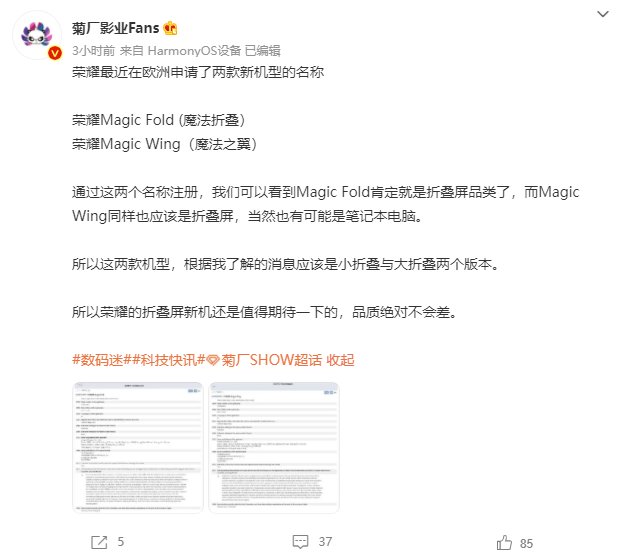еңЁйЎ№зӣ®иҝҮзЁӢдёӯйҒҮеҲ°дәҶеҗҢдёҖж–Ү件и·Ҝеҫ„дёҚеҗҢеҸӮж•°пјҢи·Ҝз”ұи·іиҪ¬еҗҺ并жңӘи°ғз”ЁcomponentWillDidMountпјҢеӣ жӯӨз”ЁеҲ°дәҶReactж–°з”ҹе‘Ҫе‘Ёжңҹпјҡstatic getDerivedStateFromPropsпјҲnextProps, preStateпјү并еңЁжӯӨи®°еҪ•пјҒ
getDerivedStateFromPropsзҡ„еҮәзҺ°пјҡ componentWillReceivePropsеңЁReactж–°зҡ„з”ҹе‘Ҫе‘Ёжңҹдёӯиў«еҸ–ж¶ҲпјҢиҝҷдёӘз”ҹе‘Ҫе‘ЁжңҹеҮҪж•°жҳҜдёәдәҶжӣҝд»ЈcomponentWillReceivePropsпјҢжүҖд»ҘеңЁйңҖиҰҒдҪҝз”ЁcomponentWillReceivePropsзҡ„ж—¶еҖҷпјҢе°ұеҸҜд»ҘиҖғиҷ‘дҪҝз”ЁgetDerivedStateFromPropsжқҘиҝӣиЎҢжӣҝд»ЈдәҶгҖӮ
getDerivedStateFromPropsзҡ„еҠҹиғҪпјҡ жҲ‘зҡ„зҗҶи§ЈпјҡgetDerivedStateFromPropsиҝҷдёӘж–№жі•еҗҚе·Із»ҸйқһеёёиҜӯд№үиҜқдәҶпјҢз®ҖеҚ•зҝ»иҜ‘иҝҮжқҘе°ұжҳҜд»ҺPropsдёӯиҺ·еҫ—StateпјҢжүҖд»ҘиҜҘеҮҪж•°зҡ„еҠҹиғҪе°ұжҳҜд»Һжӣҙж–°еҗҺзҡ„propsдёӯиҺ·еҸ–StateпјҢе®ғ让组件еңЁ props еҸ‘з”ҹж”№еҸҳж—¶жӣҙж–°е®ғиҮӘиә«зҡ„еҶ…йғЁ stateгҖӮ
getDerivedStateFromPropsзҡ„еҸӮж•°пјҡ nextPropsпјҡдёҺcomponentWillReceivePropsзҡ„nextPropsеҸӮж•°зӣёеҗҢгҖӮ
preStateпјҡеҺҹж•°жҚ®stateдёӯеҗ„ж•°жҚ®зҡ„еҖјгҖӮ
getDerivedStateFromPropsзҡ„и§ҰеҸ‘жқЎд»¶пјҡ дјҡеңЁи°ғз”Ё render ж–№жі•д№ӢеүҚи°ғз”ЁпјҢеҚіеңЁжёІжҹ“ DOM е…ғзҙ д№ӢеүҚдјҡи°ғз”ЁпјҢ并且еңЁеҲқе§ӢжҢӮиҪҪеҸҠеҗҺз»ӯжӣҙж–°ж—¶йғҪдјҡиў«и°ғз”ЁгҖӮ
з»“еҗҲдёӢеӣҫж–°Reactз”ҹе‘Ҫе‘ЁжңҹзҗҶи§Јиө·жқҘдјҡз®ҖеҚ•дёҖдәӣпјҡ
ж–Үз« еӣҫзүҮ
getDerivedStateFromPropsзҡ„дҪҝз”Ёпјҡ1.еҪ“propsж•°жҚ®жҹҗдёӘеҖјеҸ‘з”ҹеҸҳеҢ–ж—¶еҜ№stateиҝӣиЎҢиөӢеҖјпјҡ
static getDerivedStateFromProps(nextProps, preState) {
const {match: {params: {instrumentId}}} = nextProps;
// жӯӨеӨ„еҪ“дј е…Ҙзҡ„instrumentIdеҸ‘з”ҹеҸҳеҢ–зҡ„ж—¶еҖҷпјҢжӣҙж–°state
if (instrumentId !== preState.instrumentId) {
return {
instrumentId: instrumentId,
};
}
return null;
// дёҚеҸҳеҢ–пјҢеҲҷеҜ№дәҺstateдёҚиҝӣиЎҢд»»дҪ•ж“ҚдҪң
}2.ж— жқЎд»¶зҡ„ж №жҚ® prop жқҘжӣҙж–°еҶ…йғЁ stateпјҢд№ҹе°ұжҳҜеҸӘиҰҒжңүдј е…Ҙ prop еҖјпјҢ е°ұжӣҙж–° state
пјҲдҪҶжҳҜеҰӮжһңеҸӘиҰҒpropsеҖјж”№еҸҳпјҢе°ұжӣҙж–°stateпјҢе…¶е®һзӣҙжҺҘз”Ёpropsзҡ„еҖјеҺ»иҝӣиЎҢж“ҚдҪңе°ұеҸҜд»ҘдәҶгҖӮпјү
static getDerivedStateFromProps (props, state) {
const {match: {params: {instrumentId}}} = nextProps;
return {
instrumentId: instrumentId,
}
}3.еӣ дёәgetDerivedStateFromPropsиў«е®ҡд№үдёәйқҷжҖҒж–№жі•пјҢжүҖд»ҘдёҚеҸҜд»ҘзӣҙжҺҘдҪҝз”Ёthis.Г—Г—Г—пјҢеӣ жӯӨжҲ‘们йңҖиҰҒеҜ№зұ»иҝӣиЎҢе®һдҫӢеҢ–пјҢжүҚдҪҝз”Ёзұ»дёӯе®ҡд№үзҡ„ж–№жі•пјҡ
class InstrumentCommand extends PureComponent {
......
static getDerivedStateFromProps(nextProps, preState) {
const {match: {params: {instrumentId}}} = nextProps;
if (instrumentId !== preState.instrumentId) {
new InstrumentCommand(nextProps).implementDispatch(instrumentId)
}
}
}
......getDerivedStateFromPropsзҡ„жіЁж„ҸдәӢйЎ№пјҡ гҖҗReactж–°з”ҹе‘Ҫе‘ЁжңҹgetDerivedStateFromPropsзҡ„зҗҶи§ЈдёҺдҪҝз”ЁгҖ‘1.getDerivedStateFromPropsж–№жі•дёҖе®ҡиҰҒreturnдёҖдёӘеҖјпјҢеҰӮжһңдёҚйңҖиҰҒеҜ№stateж“ҚдҪңпјҢеҸӘйңҖreturn nullпјӣеҚіеҸҜпјҢдёҚеҸҜиҝ”еӣһundefinedгҖӮ
еҪ“getDerivedStateFromProps()жІЎжңүжҳҺзЎ®иҝ”еӣһд»»дҪ•еҶ…е®№ж—¶пјҢжҺ§еҲ¶еҸ°дјҡиҫ“еҮәиӯҰе‘Ҡпјҡ










